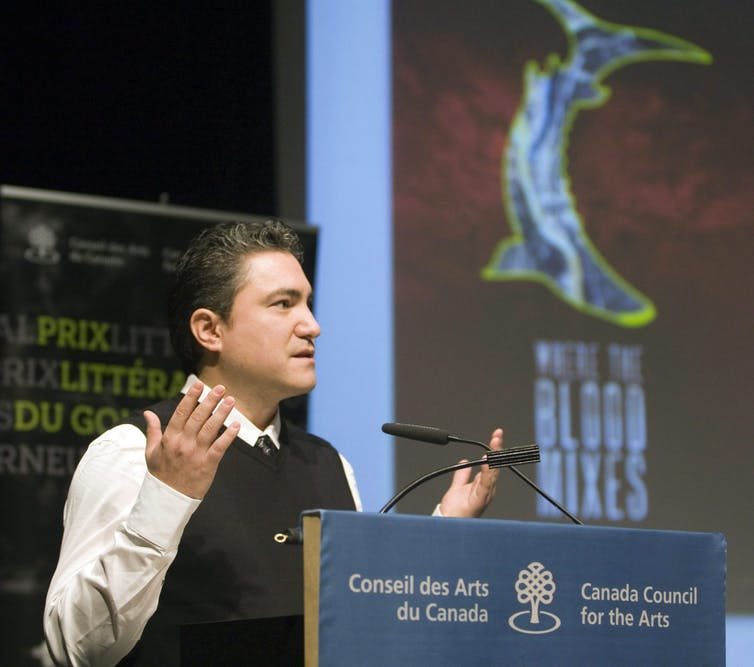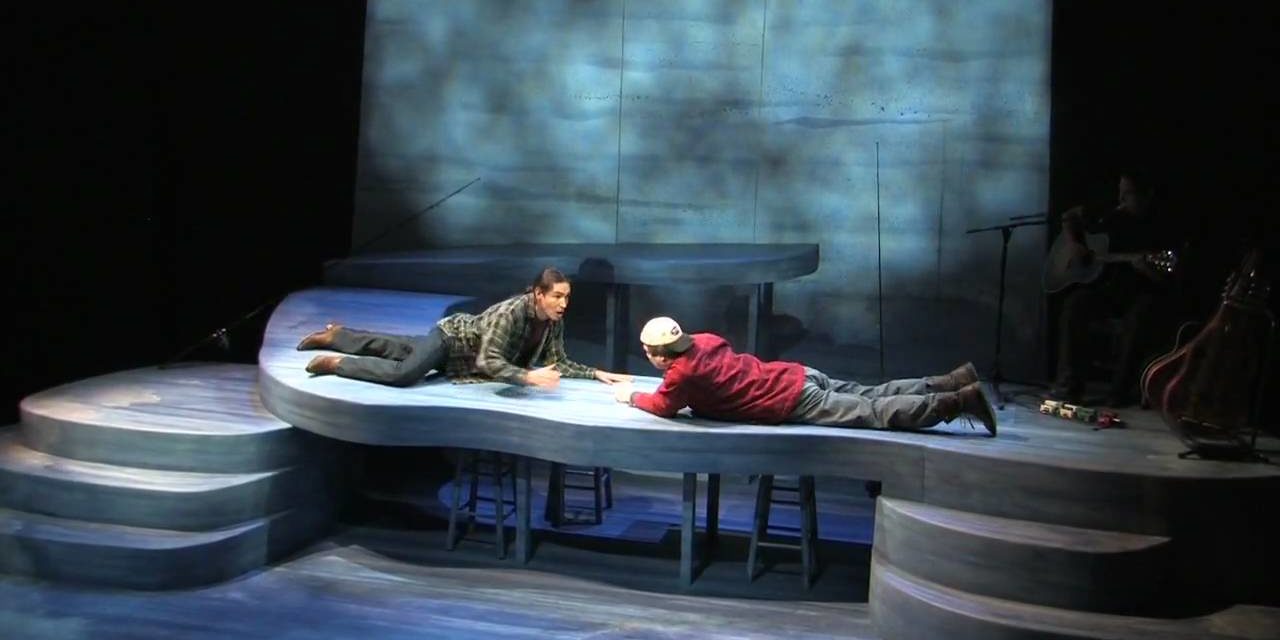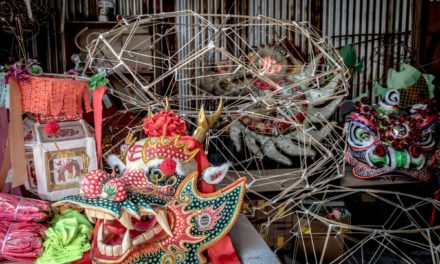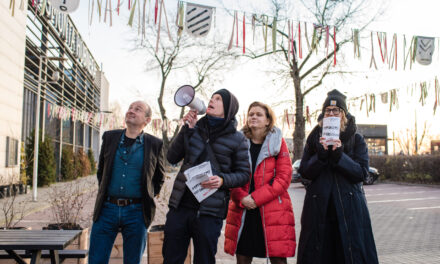The Canadian government’s Department of Canadian Heritage has the opportunity to support a groundbreaking cultural initiative.
All the government needs to do is to approve the request from National Arts Centre (NAC) for a bigger budget. The NAC has asked for an additional $3.5 million for its annual operating costs. The funds would help build the first national Indigenous theatre department in the world, slated to open in 2019.
By approving this request, Canadian Heritage would be in a position to continue to facilitate a profoundly important dialogue. They would be a broker in fostering the development of Indigenous drama, a distinct educational art form that has already proven itself in Canada and beyond. By granting these additional funds, Canadian Heritage would not only support crucial art production, but they would also be honoring the Truth and Reconciliation Commission.
Kevin Loring (Nlaka’pamux), is the award-winning playwright who is the artistic director of the NAC’s Indigenous Theatre program. He told The Globe And Mail: “Stories have the power to heal individuals, communities and the nation.”
The power of Indigenous theatre storytelling is evident in responses to Loring’s work, including Where The Blood Mixes, which won a Governor General’s Award, and his community-based project Songs Of The Land.
It’s also evident in the reception to works of other Aboriginal playwrights who have been engaging audiences in a dialogue for decades. Art critic Marsha Lederman says theatre “opens the door to…understanding.”
“The truth of Truth and Reconciliation is more than facts. There is an emotional truth as well that is not always accessible to those of us who are removed from the events. Children Of God is an important work that opens the door to this understanding.”
Innovative, transformative work
Experienced playwrights like Tomson Highway (Cree), Marie Clements (Métis), Drew Hayden Taylor (Ojibwa), and Margo Kane (Cree-Saulteaux) have laid the Canadian theatre groundwork with innovative, transformative works that have captured the attention of theatre audiences as well as Canadian and global scholars. The Globe And Mail, for example, hailed Highway’s 1986 The Rez Sisters as a “landmark play.”

Kevin Loring, a member of the Nlaka’pamux First Nation from Lytton, B.C., accepts the Governor General’s Literary Award for Drama for his book Where The Blood Mixes at a ceremony in November 2009 in Montréal. THE CANADIAN PRESS/Ryan Remiorz
Loring, Corey Payette (Oji-Cree), Tara Beagan (Ntlakapamux), and Kim Senklip Harvey (Syilx, Tsilhqot’in, Ktunaxa and Dakelh)–among others–are following in their footsteps in creating projects like Payette’s Children Of God. They are re-shaping the theatrical landscape in Canada, enlightening and entertaining audiences.
They have heightened Canadians’ awareness of both historical and contemporary life by exploring themes like residential schools, environmental issues and the diverse realities for urban and reserve Indigenous peoples across Canada.
By approving the NAC’s funding request, the Canadian government could acknowledge the ongoing contributions of these artists. It would also be contributing to the development of new Indigenous works and cultivating a climate supportive to Indigenous artists. Funds could provide employment to theatre practitioners, from playwrights to actors, and technicians. Sustained arts employment could help to ensure that this vital art form proliferates.
Benefit for education and academics
As a university educator and community teacher, I can attest to the profound influence Indigenous performance in Canada has had on my students at Thompson Rivers University, students at universities in Germany where I have taught and given guest lectures and senior citizen students at the Kamloops Adult Learners Society.
Some of these students have gone on to pursue Indigenous studies, a few have become influential Indigenous performers and some others became teachers dedicated to including Indigenous works in their syllabi. Many students simply, but importantly, rethought and broadened their previous worldviews.
I am a descendant of settlers. The impact of my engagement with Indigenous theatre has been personally transformative. It has enriched my quality of life by providing me with depth of understanding and a re-education of Canadian culture and history that I believe all Canadians need to experience.
The Truth and Reconciliation Commission states that “reconciliation must inspire Aboriginal and non-Aboriginal peoples to transform Canadian society so that our children and grandchildren can live together in dignity, peace, and prosperity on these lands we now share.”
With the groundwork already laid, a healthy national Indigenous Theatre can play an important role in that transformation.
The government of Canada has a chance to honor the spirit of the TRC and advance the artistic dialogue between Indigenous playwrights and theatregoers that is permeating the country. They can make a big difference with a simple change in a budget line. They should increase its annual parliamentary appropriation to $3.5 million to fund the NAC’s Indigenous Theatre.![]()
This article originally appeared in The Conversation on September 16, 2018, and has been reposted with permission.
This post was written by the author in their personal capacity.The opinions expressed in this article are the author’s own and do not reflect the view of The Theatre Times, their staff or collaborators.
This post was written by Ginny Ratsoy.
The views expressed here belong to the author and do not necessarily reflect our views and opinions.


















